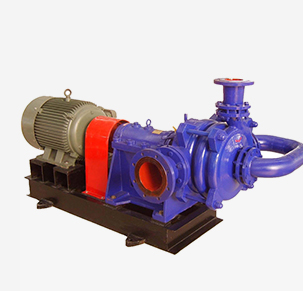Turkmen
- Afrikaans
- Albanian
- Amharic
- Arabic
- Armenian
- Azerbaijani
- Basque
- Belarusian
- Bengali
- Bosnian
- Bulgarian
- Catalan
- Cebuano
- Corsican
- Croatian
- Czech
- Danish
- Dutch
- English
- Esperanto
- Estonian
- Finnish
- French
- Frisian
- Galician
- Georgian
- German
- Greek
- Gujarati
- Haitian Creole
- hausa
- hawaiian
- Hebrew
- Hindi
- Miao
- Hungarian
- Icelandic
- igbo
- Indonesian
- irish
- Italian
- Japanese
- Javanese
- Kannada
- kazakh
- Khmer
- Rwandese
- Korean
- Kurdish
- Kyrgyz
- Lao
- Latin
- Latvian
- Lithuanian
- Luxembourgish
- Macedonian
- Malgashi
- Malay
- Malayalam
- Maltese
- Maori
- Marathi
- Mongolian
- Myanmar
- Nepali
- Norwegian
- Norwegian
- Occitan
- Pashto
- Persian
- Polish
- Portuguese
- Punjabi
- Romanian
- Russian
- Samoan
- Scottish Gaelic
- Serbian
- Sesotho
- Shona
- Sindhi
- Sinhala
- Slovak
- Slovenian
- Somali
- Spanish
- Sundanese
- Swahili
- Swedish
- Tagalog
- Tajik
- Tamil
- Tatar
- Telugu
- Thai
- Turkish
- Turkmen
- Ukrainian
- Urdu
- Uighur
- Uzbek
- Vietnamese
- Welsh
- Bantu
- Yiddish
- Yoruba
- Zulu
Telephone: +86 13120555503
Email: frank@cypump.com
Nov . 24, 2024 04:14 Back to list
Leading Manufacturers of Auxiliary Slurry Pumps for Industrial Applications and Solutions
Auxiliary Slurry Pump Manufacturers Key Players in the Industry
In the industrial world, the efficiency of slurry transport can significantly affect overall productivity and operational costs. Slurry pumps, especially auxiliary slurry pumps, play a crucial role in industries such as mining, mineral processing, and wastewater treatment. These pumps are designed to handle abrasive and corrosive materials, which makes choosing the right manufacturer a vital decision for companies relying on these essential machines.
Understanding Auxiliary Slurry Pumps
Auxiliary slurry pumps are specialized pumps that are employed in various applications to convey slurries that typically consist of solids suspended in liquids. These pumps are engineered to manage the challenges of transporting such mixtures, where the solid particles can cause excessive wear and tear. Because of their applications, these pumps need to be robust and reliable, capable of withstanding harsh operating conditions.
Importance of Quality Manufacturers
The performance and durability of auxiliary slurry pumps largely depend on the quality of their design and manufacture. Therefore, selecting a reputable manufacturer is critical. Manufacturers with substantial experience and a robust portfolio of proven designs often have cutting-edge technologies that enhance pump efficiency and longevity.
Leading Manufacturers in the Industry
Several manufacturers have established themselves as leaders in producing high-quality auxiliary slurry pumps. Below are some notable companies
1. Weir Minerals Known for their range of slurry pumps, Weir Minerals utilizes innovative materials and advanced engineering techniques to create pumps that offer high performance and reliability in the most challenging environments.
2. Schurco Slurry This manufacturer specializes in heavy-duty slurry pumps designed to handle abrasive materials across various industries. Schurco Slurry emphasizes custom solutions, providing tailored products that meet specific operational needs.
3. Metso Outotec With a solid reputation in the mining and minerals processing sector, Metso Outotec produces a comprehensive range of pumps designed for the rigorous demands of slurry transporting. Their pumps are engineered for both efficiency and longevity.
auxiliary slurry pump manufacturers

5. KSB A global player in the pump industry, KSB manufactures pumps that cater to many sectors. Their slurry pumps are built to reliable standards and offer efficient solutions for transporting abrasive materials.
Factors to Consider When Choosing a Manufacturer
When selecting an auxiliary slurry pump manufacturer, several factors should be taken into account
- Experience and Expertise Look for manufacturers with a proven track record in the slurry pump industry. Experience often correlates with a deeper understanding of operational challenges.
- Customization Options Different applications have unique requirements. Manufacturers offering customized solutions can better meet specific needs and enhance performance.
- Material Selection The type of materials used in the pump's construction will affect its longevity and ability to resist wear. Quality manufacturers typically use advanced materials to ensure durability.
- Technical Support and Service Post-purchase support is crucial for maintenance and troubleshooting. Choose manufacturers that provide strong technical assistance and after-sales services.
- Customer Reviews and Reputation Research customer feedback and the manufacturer’s overall reputation in the industry. This information can provide valuable insights into the reliability and performance of their products.
Conclusion
The selection of an auxiliary slurry pump manufacturer is foundational to ensuring efficient and reliable operation within industries that rely on slurry transport. With numerous players in the market, businesses must evaluate potential manufacturers carefully based on experience, customization, material quality, and support services. By partnering with reputable manufacturers, companies can enhance their operational efficiency while minimizing costs and maximizing productivity in their slurry handling processes.
-
Custom Drilling Mud and Slurry Pump Supplier - High Efficiency, Tailored Solutions
NewsJun.10,2025
-
Supply Vertical Submersible Sewage Pump High-Efficiency WQ/QW Pumps Supplier
NewsJun.10,2025
-
Premium Sewage Ejection System & Pumps Efficient Waste Removal
NewsJun.09,2025
-
Premium Wholesale Slurry Pump Impellers Durable & Efficient Slurry Handling
NewsJun.09,2025
-
Top Sewage Pump Companies Durable Industrial Solutions for Efficiency
NewsJun.09,2025
-
Heavy Duty Slurry Pumps - OEM High Performance & Bulk Wholesale
NewsJun.09,2025










